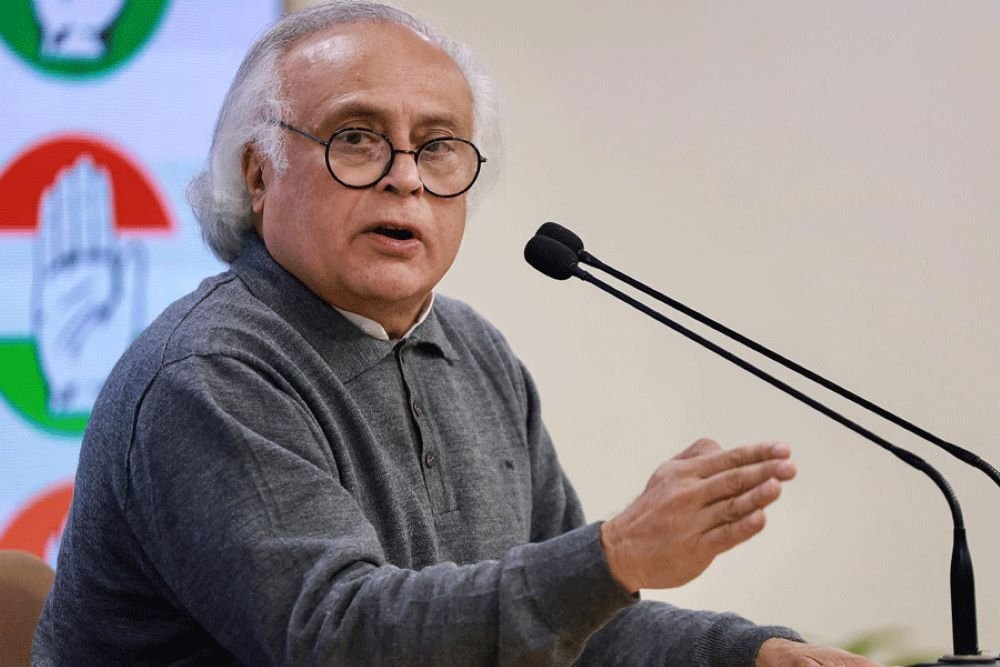The Union Law Ministry, acting on the Election Commission’s recommendation, revised an election rule to limit the documents available for public inspection.
NEW DELHI — The Congress on Saturday hit out at the Election Commission for tweaking an election rule to prevent public inspection of certain electronic documents such as CCTV camera and webcasting footage, asking why the poll panel was afraid of transparency.
Congress general secretary in-charge communications Jairam Ramesh said the party would legally challenge amendment, reported PTI.
“If there was ever a vindication of our assertions regarding the rapidly eroding integrity of the electoral process managed by the Election Commission of India (ECI) in recent times, this is it,” Ramesh said in a post on X.
Sharing a December 20 notification, the Congress leader said, “This move of the ECI will be challenged legally right away.”
The government has tweaked an election rule to prevent public inspection of certain electronic documents such as CCTV camera and webcasting footage as well as video recordings of candidates to prevent their misuse.
Based on the recommendation of the poll panel, the Union law ministry has amended Rule 93 of the Conduct of Election Rules, 1961, to restrict the type of “papers” or documents open to public inspection.
According to Rule 93, all “papers” related to elections shall be open to public inspection.
The amendment inserts “as specified in these rules” after “papers”.
Ramesh said sunlight was the best disinfectant and information would restore faith in the process — a reasoning Punjab and Haryana High Court agreed with when it directed the ECI to share all information it was legally required to with the public.
“Yet, the ECI, instead of complying with the judgment, rushes to amend the law to curtail the list of what can be shared,” he said.
“Why is the ECI so afraid of transparency?” the Congress general secretary asked.
Transparency and openness are key in exposing and eliminating corruption and unethical practices and information restores confidence in the process, Ramesh noted.
Aam Aadmi Party (AAP) chief Arvind Kejriwal also took a dig at the government, writing in Hindi on X, “This indicates something is very wrong.”
Former Rajya Sabha MP Jawahar Sircar remarked that the Narendra Modi government and the Election Commission are “frightened” and are stripping away people’s “rights.
What amendment did Congress criticize the Election Commission for?
The government has amended an election rule to limit public access to certain electronic documents, such as CCTV footage, webcasting recordings, and video recordings of candidates, to prevent potential misuse, according to a report by PTI.
The Union law ministry made the change to Rule 93(2)(a) of the Conduct of Election Rules, 1961, following a recommendation from the Election Commission (EC). The amendment restricts public inspection to only those documents explicitly listed in the rules, adding the phrase “as specified in these rules” after “papers.”
The amendment was prompted by a court case, and while documents like nomination forms, election agent appointments, results, and election account statements are covered, electronic records such as CCTV footage and webcasting footage were not previously mentioned in the rules. The EC expressed concerns that such footage could be misused, potentially compromising voter secrecy or being manipulated to create fake narratives through AI.
Punjab and Haryana High Court had recently directed the poll panel to provide copies of the required documents related to the Haryana Assembly elections to advocate Mehmood Pracha.
He had filed a petition seeking the videography, CCTV camera footage, and copies of Forms 17-C Parts I and II related to the conduct of elections.
Although the footage will still be accessible to candidates, the general public will no longer have automatic access, although they can seek such records through the courts.

